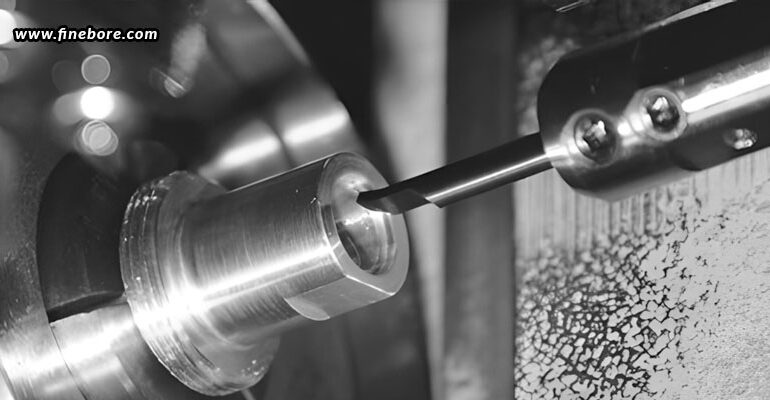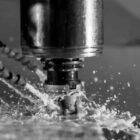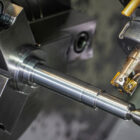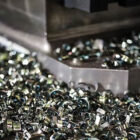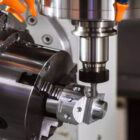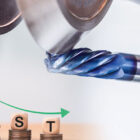The selection of appropriate tooling is paramount for attaining superior results in the realm of precision machining. Among the essential instruments in a machinist’s toolkit are boring bars. These adaptable tools serve the purpose of enlarging holes, fine-tuning internal diameters, and enhancing surface finishes. Nevertheless, with a multitude of boring bars available in the marketplace, determining the most suitable option can prove to be a daunting task, particularly when considering project requirements, material types, and desired finishes. This in-depth guide will outline the essential factors to evaluate when selecting the ideal boring bar for your machining endeavours, ensuring that you achieve the best possible outcomes.
Understanding the various types of boring bars
Prior to engaging in the selection process, it is essential to comprehend the various types of boring bars that exist, as this understanding will be vital in identifying the most appropriate choice.
- External boring bars: External boring bars are specifically engineered for external machining tasks, utilized for enlarging or finishing the outer diameter of a workpiece. Typically larger in size, these bars are employed in operations that demand high precision on the exterior surfaces of materials.
- Internal boring bars: Internal boring bars are intended for machining the interior of holes. They are frequently used for tasks such as enlarging existing holes, creating tapered openings, or achieving precise internal finishes. These bars are available in a range of sizes, lengths, and configurations to suit various hole geometries.
- Modular boring bars: Modular boring bars offer a versatile solution, enabling machinists to modify the tool setup by interchanging boring heads or extensions. These bars are particularly beneficial for projects that require adaptable tooling, as they can be tailored to fulfil diverse specifications.
- Indexable boring bars: Indexable boring bars feature replaceable inserts, rendering them a highly economical choice. Instead of replacing the entire bar when the cutting edge dulls, one can simply swap out the insert. This approach can minimize downtime and enhance overall efficiency, particularly in large-scale operations.
- Solid boring bars: Constructed from a single piece of material, solid boring bars are recognized for their rigidity and stability during cutting processes. They are predominantly utilized in high-precision applications, where minimizing tool deflection and vibration is critical.
Considering the type of material
Selecting the appropriate boring bar necessitates a thorough understanding of the material being machined. Various materials exhibit different degrees of hardness, strength, and abrasiveness, all of which can significantly affect the performance of the boring bar.
- Steel: Steel is among the most prevalent materials utilized in machining processes. When machining steel, employing a solid carbide boring bar or one equipped with carbide inserts can yield superior wear resistance and cutting efficiency. These materials are effective in maintaining sharp cutting edges, thereby facilitating the creation of smooth and precise holes.
- Stainless steel: Machining stainless steel can be particularly challenging due to its toughness and propensity to work-harden. For this material, a high-performance carbide boring bar is recommended, as it offers resistance to heat and wear, thus ensuring an extended tool life even under high-stress conditions.
- Cast iron: Cast iron is frequently machined in heavy-duty applications and demands a robust tool capable of enduring the material’s hardness and abrasiveness. For such applications, a heavy-duty boring bar with a durable design and vibration-damping features is advisable to mitigate tool chatter and ensure smooth cutting operations.
- Aluminium: Aluminium, being softer than both steel and cast iron, can still pose challenges regarding the maintenance of surface finishes. For machining aluminium, a carbide or high-speed steel (HSS) boring bar is often suitable. The primary consideration is to choose a tool that delivers a smooth finish while preventing material accumulation on the cutting edges.
- Exotic materials: Exotic materials such as titanium and Inconel necessitate the use of specialized boring bars due to their exceptional hardness and heat resistance. For these materials, carbide-based boring bars with advanced coatings are crucial for achieving efficient cutting and prolonging tool life.
Considering the tooling material and coatings
The composition of the boring bar is crucial for its longevity and effectiveness. Typically, boring bars are constructed from high-speed steel (HSS), carbide, or a combination of both materials, with the selection being influenced by specific machining requirements.
- Carbide boring bars: Carbide is recognized for its exceptional hardness, resistance to wear, and capability to endure elevated temperatures. Boring bars made from carbide are particularly suited for high-speed machining and are capable of processing challenging materials such as stainless steel, titanium, and hardened alloys.
- High-speed steel (HSS) boring bars: HSS boring bars are a cost-effective option and are suitable for a variety of general-purpose tasks. They provide adequate wear resistance and can manage moderate cutting speeds; however, they are not recommended for applications requiring high precision or exposure to significant heat.
- Coatings: Applying coatings to tools can greatly enhance the lifespan of a boring bar by minimizing wear and optimizing cutting performance. Frequently used coatings include titanium nitride (TiN), titanium carbonitride (TiCN), and diamond-like carbon (DLC), all of which contribute to increased tool durability, reduced friction, and improved cutting efficiency.
Selecting the appropriate boring bar for your machining project is a vital choice that influences efficiency, accuracy, and the overall quality of your workpiece. By evaluating the above-mentioned factors, you can identify the most suitable tool for your application. Regardless of whether you are machining steel, aluminium, or specialized materials, the correct boring bar can facilitate exceptional outcomes and enhance your machining processes. If you find yourself uncertain, do not hesitate to reach out to your tooling supplier or machining experts like FineTech Toolings, one of the best precision boring bars manufacturers in Bangalore, for personalized recommendations that align with your specific project requirements. With the right boring bar at your disposal, you will be well-prepared to address any precision machining task.

